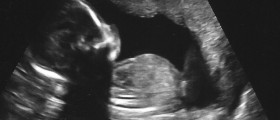
Testing
The idea behind most lie detecting tests, evidently, is the determination of whether the truth is being told. Most commonly, the polygraph test is used to do this. This test takes into account various factors, such as changes in blood pressure, increased or decreased pulse rate or excess sweating. The subject may also be presented with questions aimed at provoking a certain response.
Pathological liars may be particularly adept at concealing the fact that they are lying and thus, there may be a lack of visible changes or alterations to that person’s responses to questioning. Thus, pathological liars may be difficult to conclusively identify by this means. In this case, one must take into account certain other signs or signals given out by the subject.Signs and Signals
Pathological liars tend to react defensively when confronted directly, especially when doubts are cast upon the truth of their stories. This is a result of their frustration at their failure to convince one to believe their stories and tales.
Frequently, inconsistencies will arise with regard to the fallacies put forth by the subject. Often, they will contradict themselves or become forgetful or confused about particular details of their fantasies. These people are unable to separate truth from reality and they become part of their own lies.
Body language can often be an indication that someone is lying. Excellent emotional and physical control is a requirement if one is to lie successfully, so this will evidently cause a certain amount of strain, which may manifest itself outwardly through visible restlessness, discomfort and an inability to remain calm. This nervous body language may occur even if the subject feels he or she appears confident and imaginative while lying.
Liars may often attempt to buy time by asking for one to repeat a question, particularly if the question is related to something they have already said. They may do this in order to allow themselves a chance to concoct a tale. Should you observe this tendency in someone, it may be a sign of compulsive or pathological lying.
With regard to treatment, frequent verbal probing may be necessary to gain indications of potential pathological or compulsive lying. Cognitive Behavioral Therapy may also be used to treat these conditions.

















Your thoughts on this
Loading...